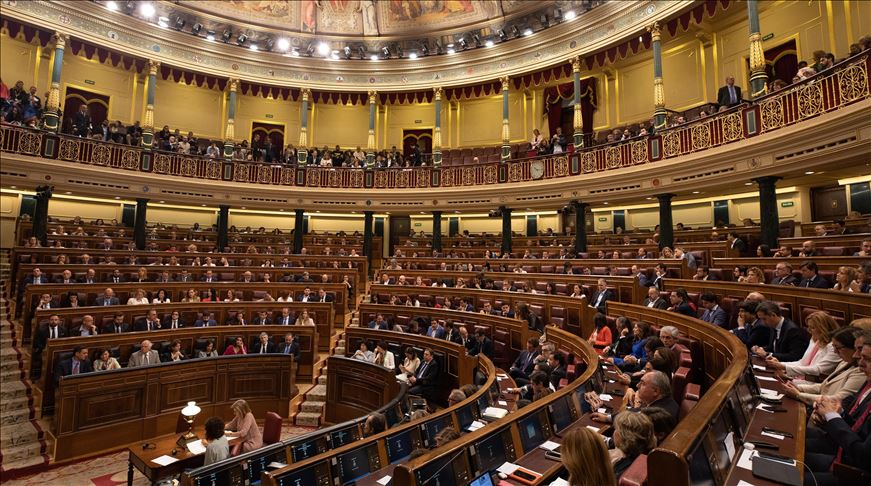 file photo
file photo
OVIEDO, Spain
Nearly 10 weeks after Spain’s national elections, the country’s acting Socialist government has given itself a deadline to form a functioning government.
The government announced Tuesday that on July 23, parliament will vote on whether acting Prime Minister Pedro Sanchez will become Spain’s confirmed leader. If Sanchez is unable to secure an absolute majority, a second vote will be held on July 25, in which Sanchez will need only a simple majority – more “yes” votes than “no” votes – to form a government.
If Sanchez fails to muster up the parliamentary support required in July, he will have two months to either secure the votes or call new elections, which would be held in November.
Since 2015, Spaniards have voted in national elections on three separate occasions. This could be the fourth.
Although Sanchez’s Socialist Party came out a winner in last April’s elections, it fell far short of winning the majority. Of the parliament’s 350-seat assembly, the Socialists won just 123 seats.
The obvious ally of the Socialist Party is the farther left party Podemos. However, Podemos is demanding to form a coalition government with the Socialists, which Sanchez has so far refused.
Still, even if Podemos, with 42 seats, and the Socialists can work out an agreement to form a government, the Socialists will still need the support or abstentions of smaller regional groups. The task is not easy, but not impossible either, and Sanchez has stated his hopes to avoid relying on separatist Catalan parties.
“Spain needs a government as soon as possible to continue advancing toward equality, a fair ecological transition, digitization and a stronger European project,” Sanchez tweeted on Tuesday after the announcement was made.
The move to set a time limit on forming a government is likely to put pressure on Podemos and other parties that are negotiating with the Socialists to either abstain or support the party. Spain’s main right-wing parties -- the Popular Party, Vox and Ciudadanos -- have all stated that they will vote against Sanchez.
After the similarly fragmented election results of 2015, which triggered another inconclusive election in 2016, Spain was led for 315 days by a caretaker government fronted by Mariano Rajoy.
After Rajoy was finally confirmed in October 2016, he was toppled by Sanchez in a vote of no-confidence less than two years later. However, Sanchez was also in the minority then, and he called snap elections in 2019 to shake off the political deadlock that had prevented him from passing the budget.
Spain has been marked by political volatility since its primarily bipartisan system fell apart starting after the financial crisis. New parties like Podemos, the liberal Ciudadanos and the far-right Vox have all burst onto the scene in recent years, but the divided politicians have not yet found the formula for stability.
Anadolu Agency website contains only a portion of the news stories offered to subscribers in the AA News Broadcasting System (HAS), and in summarized form. Please contact us for subscription options.







